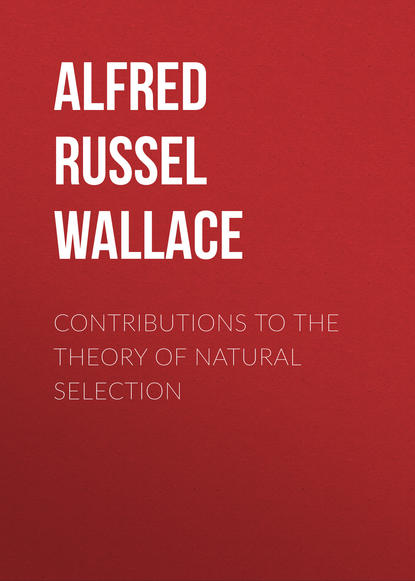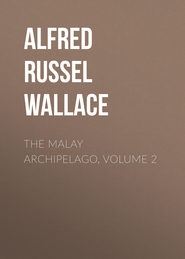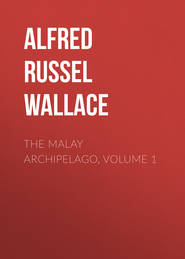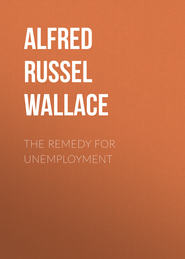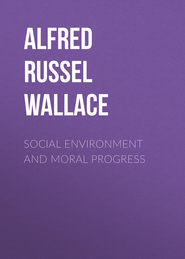По всем вопросам обращайтесь на: info@litportal.ru
(©) 2003-2024.
✖
Contributions to the Theory of Natural Selection
Автор
Год написания книги
2019
Настройки чтения
Размер шрифта
Высота строк
Поля
Tools, importance of, to man, 314 (#x9_x_9_i19).
Tree frogs, probable mimicry by, 103 (#x3_x_3_i53).
Tricondyla, 97 (#x3_x_3_i40).
Trimen, Mr., on rank of the Papilionidæ, 136 (#x4_x_4_i33).
Tristram, Rev. H., on colours of desert animals, 50 (#x2_x_2_i48).
Trochilium tipuliforme, 90 (#x3_x_3_i34).
Trogonidæ, sexual colouring and nidification of, 241 (#x7_x_7_i20).
Tropical birds often green, 52 (#x2_x_2_i51).
Tropics, most favourable to production of perfect adaptation among animals, 68 (#x3_x_3_i3);
not favourable to growth of civilization, 318 (#x9_x_9_i26).
Tropidorhynchus mimicked by orioles, 104 (#x3_x_3_i56).
Truthfulness of some savages, 353 (#x10_x_10_i10);
not to be explained on utilitarian hypothesis, 354 (#x10_x_10_i11).
Turdidæ, sexual colouring and nidification of, 245 (#x7_x_7_i45).
Turnix, 115 (#x4_x_4_i5), 251 (#x7_pgepubid00084).
Tyndall, Professor, on origin of consciousness, 361 (#x10_x_10_i23).
Upupidæ, sexual colouring and nidification of, 241 (#x7_x_7_i20).
Useful and useless variations, 34 (#x2_x_2_i22).
Utility, importance of the principle of, 47 (#x2_x_2_i41), 127 (#x4_x_4_i20).
Variability, simple, 144 (#x4_x_4_i43).
Variations, useful and useless, 34 (#x2_x_2_i22);
laws of, 143 (#x4_x_4_i41), 266 (#x7_x_7_i92);
as influenced by locality, 166 (#x5_x_5_i5);
of size, 168 (#x5_x_5_i8);
universality of, 287 (#x8_x_8_i30)-291 (#x8_x_8_i34);
are there limits to, 291 (#x8_x_8_i34);
of domestic dogs, 293 (#x8_x_8_i36);
of pigeons, 293 (#x8_x_8_i36).
Varieties, instability of, supposed to prove the permanent distinctness of species, 26 (#x2_pgepubid00014);
if superior will extirpate original species, 36 (#x2_x_2_i25);
its reversion then impossible, 37 (#x2_x_2_i27);
of domesticated animals may partially revert, 38 (#x2_x_2_i27), 40 (#x2_x_2_i31);
inconvenience of using the term, 161 (#x4_x_4_i57).
Vertebrata, mimicry among, 99 (#x3_x_3_i44).
Voice of man, not explained by natural selection, 350 (#x10_x_10_i4).
Volucella, species of mimic bees, 75 (#x3_x_3_i13), 98 (#x3_x_3_i43).
WALSH, Mr., on dimorphism, of Papilio turnus, 153 (#x4_x_4_i49).
Weapons and tools, how they affect man’s progress, 314 (#x9_x_9_i19).
Weevils often resemble small lumps of earth, 58 (#x2_x_2_i62).
Weir, Mr. Jenner, on a moth refused by birds, 89 (#x3_x_3_i32);
on beetles refused by birds, 93 (#x3_x_3_i36);
on caterpillars eaten and rejected by birds, 119 (#x4_x_4_i7).
Westwood, Professor, objections to theory of mimicry, 108 (#x3_pgepubid00041).
White colour in domesticated and wild animals, 66 (#x3_x_3_i1).
Wild and domesticated animals, essential differences of, 38 (#x2_x_2_i27)-41 (#x2_x_2_i32).
Will really exerts force, 367 (#x10_x_10_i31);
probably the primary source of force, 368 (#x10_x_10_i31).
Wood, Mr. T. W., on orange-tip butterfly, 59 (#x2_x_2_i64).
Woodcocks and Snipes, protective colouring of, 53 (#x2_x_2_i54).
Woodpeckers, why scarce in England, 32 (#x2_x_2_i20).





